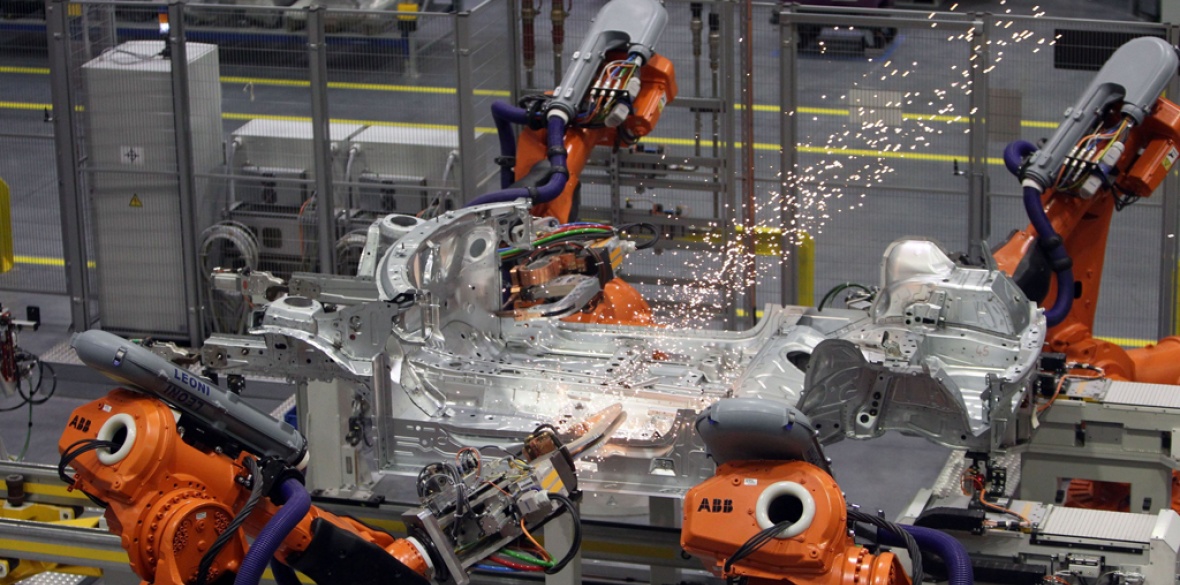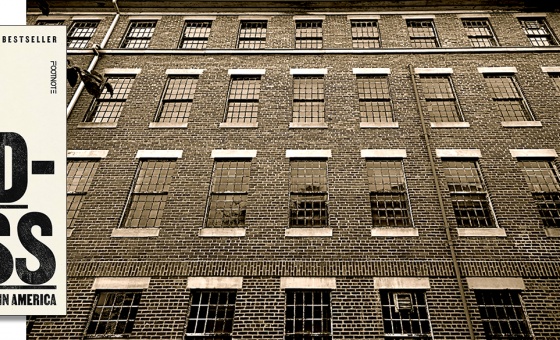This is the last article you can read this month
You can read more article this month
You can read more articles this month
Sorry your limit is up for this month
Reset on:
Please help support the Morning Star by subscribing here
THE first industrial revolution gave birth to modern trade unionism, spawned in the factories and communities made by vast, revolutionary change.
A new global order was taking root putting an end to feudalism. In its place stood new rulers. The industrialists with their mass production and the financiers with their borderless banks. All with almost unimaginable power to determine the lives of others.
But with the advance of modern trade unionism came safeguards hard won by ordinary people. From growing wages to improved health and safety, ordinary workers created their own protection.
First by bitterly fought-for concessions at the workplace and much later via the statute book.
Now, we stand at another cliff edge, at the precipice of another grand phase of technological development — another industrial revolution.
There are few threats as potentially dangerous for working people as “industry 4.0.” Research suggests that 35 per cent of all UK jobs could be lost within the next two decades. But as well as eliminating entire occupations automation will also create vast wealth. PricewaterhouseCoopers estimates that artificial intelligence alone could add £232 billion to the UK’s economy by 2030.
In the midst of the 1980s Thatcherite reforms, we lost jobs and wages to technology while boardrooms profited. As a society we can’t afford the same but bigger. Technology must not be used to roll back the gains that working people and their unions have won over the last century.
And it is now clear that it is not only manual occupations at risk; white-collar workers will share the brunt of technological change.
From the introduction of digital therapeutics in health, to the development of algorithms in the legal sector, automation is likely to present a profound challenge across many occupations and much of the global economy.
Notable cases aside, to date, the trade union response has been at best piecemeal. The mass strikes of Korean shipbuilders or the future planning of the German metalworkers are sadly the exception as opposed to the norm.
But at Unite we are changing that. As I write, we are holding the largest-ever dialogue with our shop stewards and activists on automation. Seventy per cent have confirmed that new technology will have an impact on their workplaces over the next 10 years.
We are planning our practical and comprehensive industrial and political response. We are looking to both now and the future, incorporating new technology into the union’s recently developed Broad Industrial Strategy that focuses exclusively on building union bargaining power at the workplace.
In the short term, together with our shop stewards, we will develop comprehensive risk registers that allow our activists to see if their workplace is at risk; put new technology on the negotiating table; ready our workplaces for possible strike action and build on our Leverage strategy.
Longer-term industrial objectives are ambitious, setting ourselves targets to build credible economic authority on a global scale.
Trade unions need coercive, industrial power. This will require developing our strength and culture in areas of the economy critically important to Britain and Ireland Plc. And in parallel it will mean safeguarding the union by organising in sectors at lowest risk. But most importantly we will take practical, well-resourced steps to build genuine transnational networks of shop stewards and trade union activists.
And coupled with the industrial programme will be the political demands — a Unite manifesto for the 21st-century workplace. We will make the call for technology to work for everyone and not just through re-skilling, but by demanding practical legislative change that can help us protect jobs and deliver shorter working time.
Over 90 per cent of our shop stewards have demanded that their union put job protection and human accountability for the actions of technology at the heart of our political programme.
This latest stage of technological transformation may well leave us a stark choice. Either automation will work for ordinary people, or change will profit the elite and impoverish great swathes of the global populace.
Faced with this threat, trade unionism is as critical as ever. But it is only by bringing our shop stewards and activists together that we can get ahead of the game.
And we will have to do this globally. Capitalism offers scant regard to borders. It is an enormous challenge. But I do know this. If “another world” is truly possible, then dynamic, internationalist trade unions will have to be at the heart of making it happen.
Sharon Graham is Unite executive officer.








